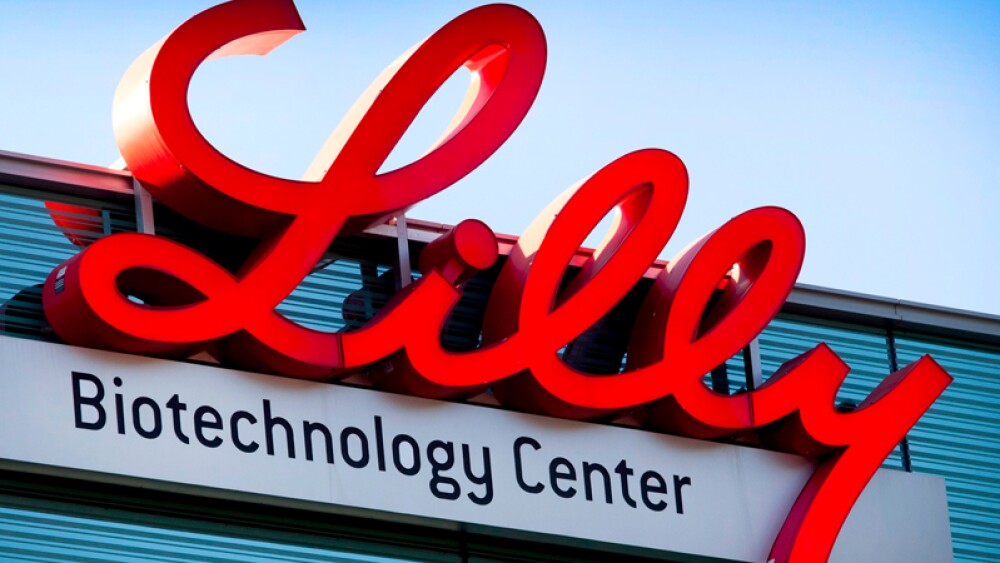February 1, 2017
By Alex Keown, BioSpace.com Breaking News Staff
INDIANAPOLIS – Eli Lilly has closed off another avenue for solanezumab, its once promising experimental therapy for Alzheimer’s disease. On Monday, the company said it was scrapping another Phase III study of solanezumab, but this time for patients with prodromal disease, an early form of Alzheimer’s.
In a call with analysts, Chief Executive Officer David Ricks said there was scientific basis to continue the Phase III trial of solanezumab for patients with prodromal disease, Endpoints reported. Eli Lilly was looking to recruit 2,450 patients for the Phase III trial, but that too has been scrapped.
The company had high hopes for solanezumab, but in November the company reported it failed in its Phase III trial. Lilly said solanezumab didn’t show a statistical slowing in cognitive decline compared to the placebo arm in Alzheimer’s patients. Despite the November failure of solanezumab, at the J.P. Morgan Healthcare Conference earlier this month, Ricks said the company remains committed to developing a treatment for Alzheimer’s disease. He said the company has six Alzheimer’s drugs in the clinic, including a BACE drug it licensed from AstraZeneca . Ricks said they have several assets that will continue to target amyloid plaque, which is what Solanezumab targeted. The company also has preclinical plans for solanezumab. Endpoints said the drug is under investigation for Anti-Amyloid Treatment in Asymptomatic Alzheimer’s “A4” and Dominantly Inherited Alzheimer’s Disease.
In the call with analysts, Lilly’s chief scientist Jan Lundberg said it remains unclear how solanezumab impacted amyloid buildup nor neurodegeneration in the brain. However, Lundberg said the next agent to test in the amyloid-plaque theory are the oral-based inhibitors, which Lundberg said should have a stronger effect on the amyloid beta in the brain, according to a transcript provided by Endpoints.
Following the failure of solanezumab, Lilly announced it was terminating 486 sales representatives working with the company’s U.S. Bio-Medicines business. The company will hand out pink slips beginning March 31. Employees in the division would have handled sales for the solanezumab had it been successful. In a December statement, when the cuts were first announced, Eli Lilly said the sales force reduction was also affected by the “expectation of upcoming patent expirations.” Those drugs include Cialis, for erectile dysfunction, the blood thinner Effient and Strattera, a drug for attention deficit disorder.
Ricks took over the top spot at Eli Lilly in January. Ricks started the new year with some organizational changes that included leadership changes and a reorganization of divisions. As of Feb. 1, the company’s Diabetes, Oncology and Bio-Medicines human pharmaceutical therapeutic business areas will assume commercial responsibility for their products in China—in addition to the U.S., Japanese and Canadian markets in which they already operate. Other changes include an announcement that Lilly Diabetes will host the company’s human pharmaceutical commercial operations in the United States, China, Japan and Canada.
On Monday, the company announced fourth quarter earnings, with revenue projections beating analysts’ estimates. Sales were driven by demand for Lilly’s diabetes drugs Trulicity and Humalog, Reuters noted.





